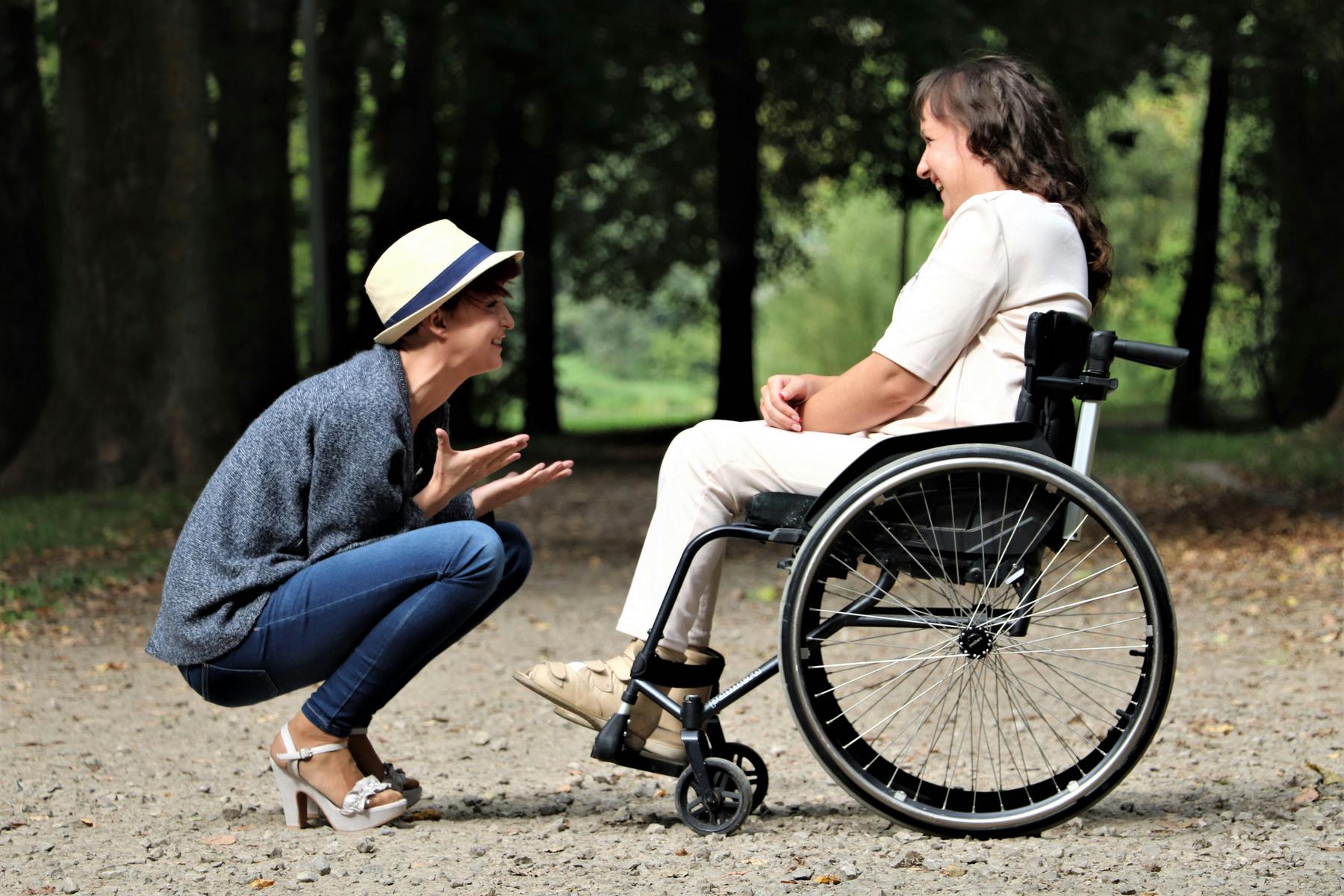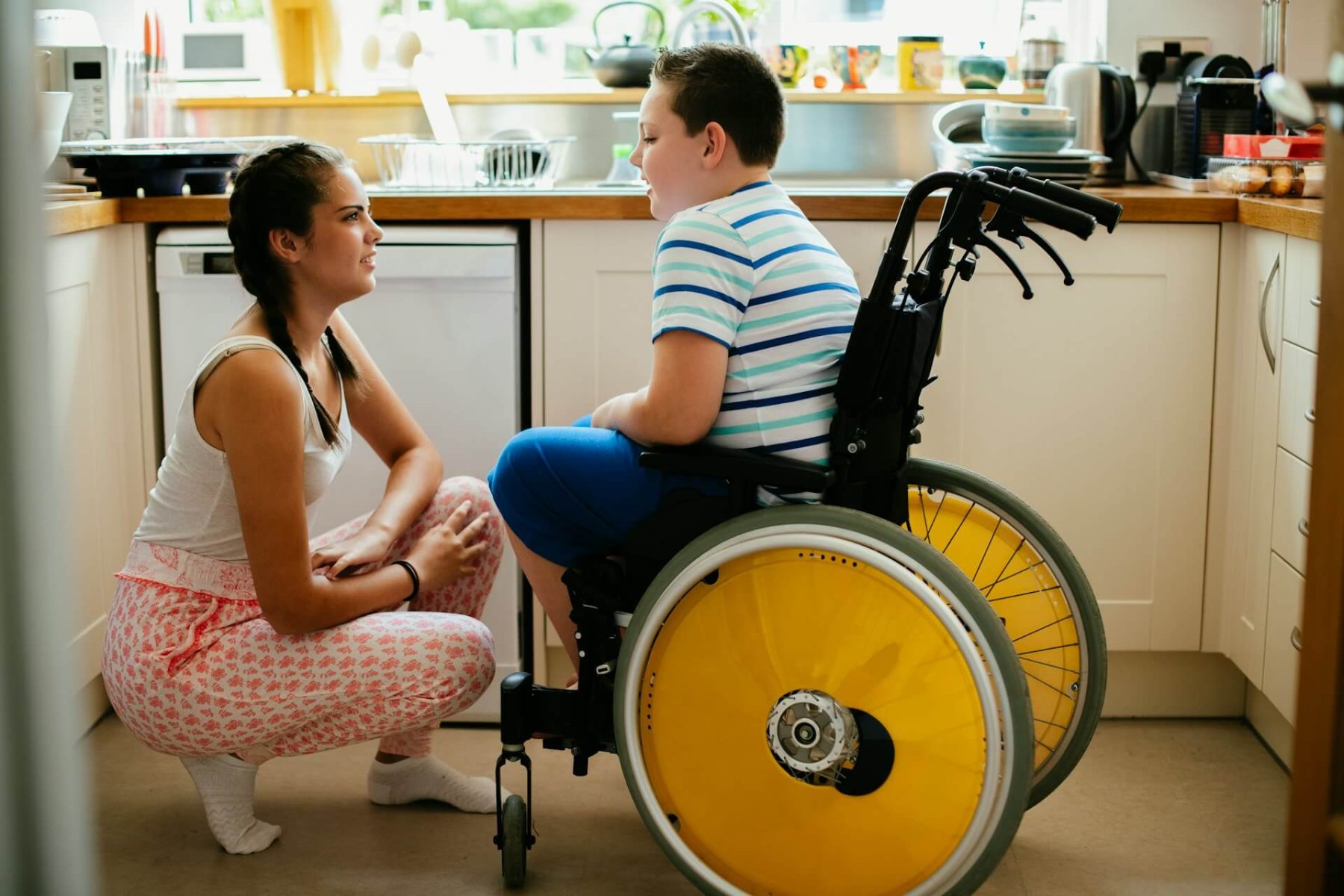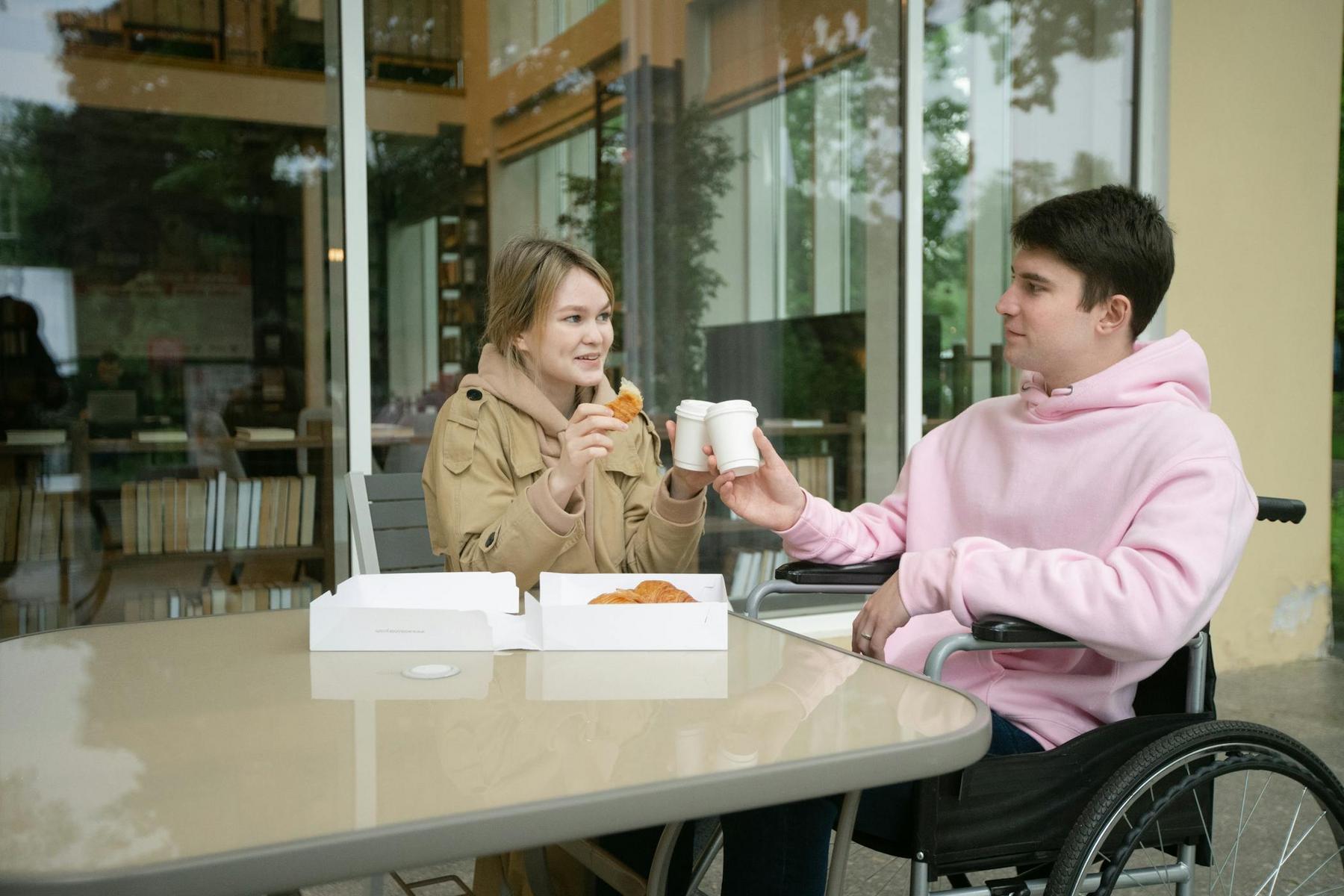In the heart of disability support services lies an invaluable resource that can’t be replaced by even the most sophisticated care systems – family involvement. When families actively participate in disability care, they don’t just fill gaps in the system; they fundamentally transform the quality and effectiveness of support. Here in Cairns, where community ties run deep and access to specialised services can vary widely, family participation becomes not just beneficial but essential to comprehensive disability care. The knowledge, advocacy, and emotional support that families bring create a foundation upon which professional services can build truly person-centred care approaches.
How Does Family Knowledge Transform Personalised Disability Care?
Family members possess an intimate understanding of their loved one’s preferences, routines, communication styles, and needs that often takes professionals months or years to develop. This knowledge represents a treasure trove of insights that, when properly integrated into professional care plans, significantly enhances the effectiveness of disability support.
Parents of children with developmental disabilities, for instance, can guide therapists in designing interventions that align perfectly with their child’s unique communication style. They understand subtle behavioural cues that might indicate discomfort, anxiety, or happiness – information that proves invaluable in adjusting support strategies. In residential care settings across Cairns, families help structure daily activities that align with their loved one’s cognitive abilities and interests, creating environments where individuals can truly thrive.
This personalisation extends beyond basic preferences to encompass cultural considerations, family traditions, and individual history – elements that contribute significantly to a person’s identity and wellbeing. When providers like Advanced Disability Management in Cairns collaborate closely with families, they gain access to this contextual knowledge, allowing them to deliver care that respects the whole person, not just their disability-related needs.
“Families provide irreplaceable insights into preferences, routines, and behavioural cues, enabling truly tailored care plans that respect individual dignity and promote independence.”
What Emotional Benefits Does Family Participation Bring to Disability Care?
The emotional dimension of disability care often determines its ultimate success. Active family participation creates a foundation of trust and security that significantly reduces anxiety for individuals with disabilities, particularly during transitions or challenging periods.
Research has consistently linked consistent family engagement to improved mental health outcomes and higher rates of independent living success. This emotional support system becomes particularly crucial in Cairns, where geographic isolation can sometimes limit access to comprehensive professional networks. Local services like Advanced Disability Management prioritise family inclusion in holistic care models precisely because they recognise the powerful emotional stability that familial bonds provide.
For many individuals with disabilities, knowing their family remains actively involved in their care journey provides reassurance and continuity. This involvement helps bridge the gap between professional support and personal connection – a combination that fosters dignity, self-confidence, and emotional wellbeing that purely clinical approaches simply cannot replicate.
The emotional benefits extend to family members themselves, who often report greater satisfaction and reduced anxiety when they can remain actively involved in their loved one’s care. This mutual emotional support creates a positive feedback loop that enhances outcomes for everyone involved in the disability care ecosystem.
How Do Families Navigate Complex Disability Support Systems?
In Australia’s disability landscape, navigating the National Disability Insurance Scheme (NDIS) and other support systems requires knowledge, persistence, and advocacy skills. Families often emerge as essential navigators within these complex frameworks, ensuring their loved ones access appropriate services despite bureaucratic challenges.
Families in Cairns take on several critical roles in systems navigation:
Care Coordination
Family members frequently become the central point for managing transitions between therapies, housing options, or daily support programs. They maintain the continuity of care by communicating effectively between different service providers and ensuring all aspects of support work harmoniously toward common goals.
NDIS Plan Implementation
The practical implementation of NDIS plans requires constant attention and adjustment. Families collaborate with providers to align funded supports—such as therapeutic services, assistive technologies, and community participation programs—with evolving needs. Their advocacy ensures that plans reflect real-world requirements rather than theoretical assessments.
Addressing Service Gaps
In regional areas like Cairns, families often need to bridge service shortages by coordinating transportation, supplementing formal respite care, or finding creative solutions to access limitations. Their flexibility and determination frequently make the difference between comprehensive support and fragmented care.
| Family Role | Impact on Care Outcomes |
|---|---|
| Behavioural Insight Sharing | Reduces trial-and-error approaches in therapy plans, accelerating progress |
| Crisis Management | Lowers hospitalisation rates during health declines through early intervention |
| Cultural Advocacy | Ensures culturally safe practices for diverse families, including First Nations communities |
| Continuity Maintenance | Preserves care quality during provider transitions or staff changes |
| System Navigation | Improves access to appropriate services and funding opportunities |
What Challenges Do Families Face When Supporting Loved Ones with Disabilities?
While family involvement brings tremendous benefits to disability care, it also comes with significant challenges that require acknowledgment and support. Understanding these challenges helps providers like Advanced Disability Management develop more effective collaboration strategies.
Geographic Isolation
Rural families in the broader Cairns region face limited access to specialists and support services, increasing their reliance on telehealth options and local NDIS partners. This isolation can place additional pressure on family members to provide care that might otherwise be handled by specialists.
Caregiver Burnout
The emotional and physical demands of supporting a family member with a disability can lead to chronic stress. Research indicates that 43% of Australian carers report experiencing burnout symptoms due to balancing caregiving responsibilities with employment and other family obligations.
Navigating Complex Systems
NDIS paperwork, eligibility criteria, and funding processes often overwhelm families without proper guidance. The technical language and frequent policy changes create additional barriers to accessing necessary support services.
To address these challenges, forward-thinking providers implement several key solutions:
- Comprehensive Training Programs: Workshops focusing on NDIS navigation, stress management techniques, and practical caregiving skills help families build capacity and confidence.
- Integrated Respite Care: Services like Advanced Disability Management provide temporary relief options, allowing family caregivers to rest and recharge while knowing their loved ones remain in capable hands.
- Technology Integration: Shared digital care platforms improve communication between families and providers, creating transparency and reducing the administrative burden on family members.
How Does the NDIS Framework Support Family Participation in Disability Care?
Australia’s NDIS explicitly recognises families as essential partners in effective disability care, even permitting paid family carer roles under specific guidelines designed to prevent conflicts of interest. This recognition reflects growing awareness that family involvement often determines the success of support plans.
The NDIS framework includes several provisions specifically designed to support family participation:
Customised Funding Packages
NDIS plans can cover assistive technologies, home modifications, and skills training programs that directly support family-based care arrangements. These packages acknowledge the central role that home environments play in comprehensive disability support.
Support Coordination
In Cairns, NDIS support coordinators help families align their plans with local resources, including community participation programs and specialised disability services. This coordination reduces the administrative burden on families while maximising available supports.
Culturally Responsive Approaches
The NDIS framework increasingly recognises the importance of culturally appropriate care, particularly for Indigenous families. Partnerships with Aboriginal Family Wellbeing Services ensure culturally safe approaches that respect community values and traditions.
“The NDIS explicitly recognises families as partners in care, creating frameworks that support their involvement while providing necessary resources to prevent caregiver burnout.”
What Makes Family-Provider Partnerships Successful in Disability Care?
Successful family involvement in disability care depends on genuine partnerships between professional providers and family members. These partnerships require mutual respect, clear communication channels, and recognition of complementary expertise.
In the Cairns context, providers like Advanced Disability Management exemplify best practices in family-provider collaboration by:
- Offering 24/7 supported independent living arrangements that incorporate family input on daily routines and preferences.
- Providing dedicated NDIS plan managers who simplify financial tracking and service coordination for families.
- Delivering targeted workshops on behaviour management, advocacy skills, and self-care strategies for family members.
- Creating formal feedback mechanisms that ensure family perspectives influence service development and improvement.
Conclusion: The Future of Family-Centred Disability Care
The role of family involvement in effective disability care continues to evolve as support systems become more sophisticated and person-centred. In Cairns, where community connections run deep and geographic challenges remain significant, family participation represents not just a helpful addition but a fundamental component of quality care.
As we look toward the future, the most promising approaches will build on the foundation of family expertise while providing the structural supports necessary to prevent burnout and ensure sustainability. By recognising families as equal partners rather than peripheral participants, disability service providers can harness the power of these natural support networks to enhance independence, dignity, and wellbeing for individuals with disabilities.
The path forward involves continued investment in family capacity-building, flexible support options, and collaborative care models that value both professional and familial contributions. With this integrated approach, Cairns can develop disability support systems that truly reflect the community’s values of connection, respect, and mutual support.
Can family members be paid as NDIS carers in Australia?
Yes, under specific circumstances, family members can be paid as NDIS carers. The NDIS permits these arrangements when they represent the most appropriate care solution—particularly in cases involving cultural considerations or geographic isolation. Strict guidelines exist to prevent conflicts of interest, and not all family relationships qualify. Local support coordinators can provide guidance on eligibility for these arrangements.
What support is available for family caregivers experiencing burnout?
Family caregivers in Cairns can access several support options, including respite care services, carer support groups, and counselling services. The NDIS may fund short-term respite care to provide breaks for primary caregivers. Additionally, providers like Advanced Disability Management offer workshops on stress management and self-care strategies specifically designed for family caregivers.
How can families effectively advocate for better disability services in regional areas like Cairns?
Effective advocacy involves connecting with local disability advocacy organisations, participating in NDIS consultation processes, and documenting service gaps with specific examples. Families can further strengthen their advocacy efforts by forming community networks, collaborating with local providers, and communicating directly with NDIS regional coordinators.
What role do families play in transitioning young adults with disabilities to independent living?
Families play a crucial role in transitioning young adults by gradually building independence skills, assisting in identifying appropriate supported living arrangements, and providing essential emotional support as their loved ones adjust to new living situations. Transitional programs in Cairns often incorporate family involvement to facilitate this process.
How can cultural considerations be incorporated into family-involved disability care?
Cultural considerations should be explicitly discussed during care planning, with family members identifying important cultural practices, values, and traditions. Providers are encouraged to seek cultural competency training, and in Cairns, partnerships with local cultural organisations help ensure culturally safe care that respects family traditions while meeting support needs.



